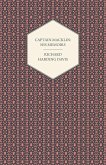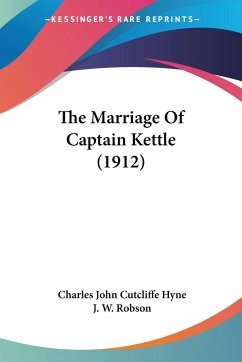Captain Macklin His Memoirs is a novel written by Richard Harding Davis. The book is a fictional account of the life of Captain Macklin, a retired sea captain who recounts his adventures and experiences throughout his career. The story is set in the late 19th century and follows Captain Macklin's journey from his early days as a sailor to his later years as a successful businessman. The novel is divided into several chapters, each one detailing a different phase of Captain Macklin's life. The book is written in a first-person narrative style, with Captain Macklin as the main protagonist. The novel is full of action, adventure, and intrigue, as Captain Macklin navigates through the challenges and obstacles of his life. The book is a classic example of American literature and is considered one of the best works of Richard Harding Davis. It is a must-read for anyone interested in adventure and historical fiction.1906. Davis was an American journalist and novelist who covered wars all over the world. His vivid accounts made him one of the leading reporters of his day. Captain Macklin begins: It may seem presumptuous that so young a man as myself should propose to write his life and memoirs, for, as a rule, one waits until he has accomplished something in the world, or until he has reached old age, before he ventures to tell of the times in which he has lived, and of his part in them. But the profession to which I belong, which is that of a soldier, and which is the noblest profession a man can follow, is a hazardous one, and were I to delay until tomorrow to write down what I have seen and done, these memoirs might never be written, for, such being the fortune of war, tomorrow might not come. See other titles by this author available from Kessinger Publishing.This scarce antiquarian book is a facsimile reprint of the old original and may contain some imperfections such as library marks and notations. Because we believe this work is culturally important, we have made it available as part of our commitment for protecting, preserving, and promoting the world's literature in affordable, high quality, modern editions, that are true to their original work.
Hinweis: Dieser Artikel kann nur an eine deutsche Lieferadresse ausgeliefert werden.
Hinweis: Dieser Artikel kann nur an eine deutsche Lieferadresse ausgeliefert werden.








